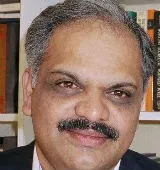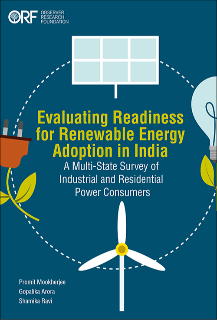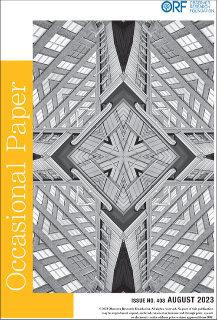
As the shock of the US election result wears off, the reality of having to figure out how to deal with new President Donald Trump becomes imperative. The normal guide-posts that we would use to evaluate the foreign and security policies of any candidate for high-office are the candidate’s election programme or manifesto, statements made during or before the campaign or the candidate’s previous political record. Unfortunately, none of the usual guide-posts are very useful in helping us wade through Trump’s worldview, policy preferences or priorities. Trump seems to make up policies on the go, and there are some contradictions in what he has said on foreign policy issues, though some analysts such as Thomas Wright have argued that there is some long-term consistency to Trumps foreign policy pronouncements. The problem is compounded by Trump’s lack of any previous political or administrative position of responsibility in the government or the legislature.
Focusing on what Trump said during the campaign, the only other source of his thinking paints a mixed picture, for three reasons. The first is that some of his policies are internally contradictory: for example, he blames the Obama administration for ignoring American allies, but also blames American allies as free-riders who don’t pay their fair share of the defence burden. The second is that some of his policies will clash with other policies: he wants to cooperate with Russia in Syria in tackling the threat of the Islamic State but also takes a hard line on Iran, with which Russia is aligned in Syria. Finally, it is not clear whether his statements on foreign policy are personal ruminations or well-thought policy positions. His foreign and security policy agenda are somewhat thin on specifics, though some of his speeches provide some details.
One of the most noted elements of Trump’s foreign policy is his friendliness towards Russia. If this is a consistent and well thought position, this could potentially change international political dynamics, and in directions that are favourable to India. One of the problems with American foreign policy under the Obama administration is that it has managed simultaneously to spoil relations with both Russia and China, driving them in to each other’s arms, despite their own mutual suspicions. Though this is not all Washington’s fault, the consequence has been deleterious to Indian and Asian security. Improving US-Russian relations potentially permits India to garner the support of both to balance China.
On the other hand, any American outreach to Russia under Trump faces some challenges. Trump’s plans for the Iran nuclear deal could lead to disputes with Russia, which has signed and supported the Joint Comprehensive Plan of Action (JCPOA), as the Iran nuclear deal is formally called. Trump’s position is slightly unclear on the issue: during the Republican primaries, unlike the other Republican contenders (except Jeb Bush), he did not promise to tear up the deal on his first day in office, promising only to renegotiate what he calls “the worst deal ever negotiated”. But this moderation is inconsequential: it is unlikely that the deal can be renegotiated, and any attempt to do so will be tantamount to scuttling it, in effect pitting the US against Russia and China (as well as European states, of course, who strongly support the deal). And as noted earlier, a hard line on Iran may also create problems in cooperating with Russia in Syria.
Trump’s position on China is also somewhat confusing. Though some analysts have suggested that China might prefer Trump because he will presumably take a more moderate position on human rights or at least give China an excuse to point fingers at the US (on issues such as torture, which Trump is on record as supporting), the picture can get much more complicated. Trump has also called repeatedly for taking harsh measures against China’s currency manipulation and trade practices, and threatened to impose high tariffs on Chinese products imported into the US. Such measures may deepen antagonism between US and China, offering India a potential partner against China, but it could also lead to a trade war which will hurt the Indian economy too.
Yet another complication is that Trump has also railed against Asian allies as much as NATO allies, and seems particularly irked by Japan. Trump’s election has already worried the Japanese government, which is concerned about the effect of Trump’s rhetoric on both US commitment to its allies and also to the potential American public perception of Japan and how it might do lasting damage to the US-Japan alliance. Trump has suggested, in an off-the-cuff manner, that Japan and South Korea can get their own nuclear weapons, though he has also at times denied what he had said previously. If Japan, South Korea and others fear that American commitment to their defence is suspect, they might indeed consider nuclear weapons. But this could lead to a weakening of American alliance structure in the Asia-Pacific which will only help China and make it that much harder for India in its own efforts to maintain a balance of power in Asia.
At a broader level, again, the picture is mixed. Trump appears much more suspicious of America’s international engagement than even Obama, though this suspicion comes from very different ideological logic. On the other hand, Trump also appears much more willing to use American military power, though for different purposes than what Obama did. How these contradictions pan out in dealing with issues such as the South China Sea, for example, is unclear.
Though Trump has said little of substance directly on India or South Asia, Trump’s larger foreign policy approaches is bound to have an impact on India. India and the US share an interest in a stable and balanced Asia, which cannot be achieved without a clear American commitment to the region. As the Trump presidential campaign transitions to an administration, New Delhi can only hope that there will be greater clarity about the choices that face the new administration and the import of these on both American prosperity and Asian stability.
The views expressed above belong to the author(s). ORF research and analyses now available on Telegram! Click here to access our curated content — blogs, longforms and interviews.




 PREV
PREV


